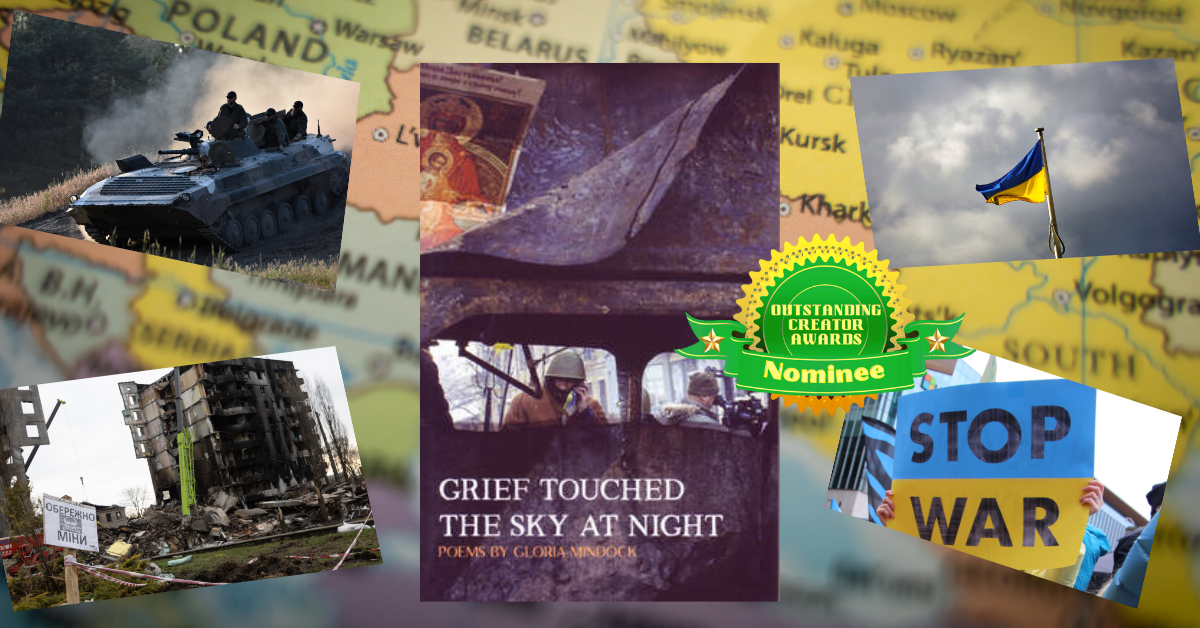|
Score: 92+/100 (9.2+ out of 10)
In February of 2022, the world was shaken as Russia invaded Ukraine. It sparked the largest war in the region in decades, hearkening back to World War II. There were concerns that this war might grow into an international and intercontinental conflict, potentially involving numerous nations with nuclear capabilities. The human costs were the most horrific part of all of this as soldiers and civilians on both sides perished. Thousands of refugees fled deeper into the country, abandoning their homes and businesses. For a while, most of the world seemed united in their disdain for Russia's needless act of aggression, standing with Ukraine. However, little by little, the news cycle and the world's attention moved on. Ukraine and Russia are still at war, people are still dying, and yet... it seems all but forgotten and ignored at this point. Ukraine is a country far away from the United States, one with a different history and a different culture, yet its issues are our issues—they're humanity's issues. That's true whether we want to accept or acknowledge that or not. Grief Touched the Sky at Night by Gloria Mindock is a powerful, emotionally-charged poetry book that reintroduces the rest of the world to the war that's still wrecking havoc between Ukraine and Russia. Foremost, it brings our attention to the human costs of the conflict. This book is split into three sections: Decomposition, Before War, and Anesthesia. Decomposition, as the name implies, discusses the brunt of the violence, gore, and brutality of the Russo-Ukraine War. The bodies of soldiers and civilians lie scattered—at times, fractured, fragmented, and ripped apart. Towns are razed, pillaged, raped, and plundered as if it were the Middle Ages. Baby strollers are left empty and alone in empty, lonely streets—ghost towns. Ukrainians are captured, kidnapped, and sometimes even sexually exploited. A family is buried in a hastily-dug, makeshift grave. Fighting and flames move from building to building. It is so horrific that the narrator, in The Blindfold, pleads to have their eyes covered so they cannot witness this horror anymore. Perhaps the poem that stood out to us the most in this section was Bells of Kyiv, which seems to center around a bombed-out place of worship. Truly, nothing is sacred. Nowhere is safe. Even a crucifix containing the image of Christ lays discarded and battered on the ground. Powerfully and beautifully, however, it is noted that one of Jesus' hands is missing, having been freed from its nail and cross by the fighting. This, strangely, seems to imply hope: a hope of being free from suffering and war in the future. This is in stark contrast to the ending of Numb which pessimistically, dismally concludes, “Bandages won't help / The worm will find its way.” Before War, as you might expect, is a section with a much more peaceful tone, albeit still one that's tainted by sadness, anxiety, and grim expectations. Despite the absence of fighting, violence, and gore, there's still a haunting and oppressive aura of foreboding—a terror of what's to come, especially considering having read the previous section. The narrator is haunted by the 5:30 time on the clock, a time that signals the darkness before the dawn—a dawn that brings more terror and a different kind of darkness: the brutality of humanity. It is the former darkness that serves as the only time of relative peace that the Ukrainians enjoy—a time of an informal truce as militaries prefer to fight in the daylight. It is during this time that the people, hunkered up in their bunkers and makeshift shelters cling to their beliefs and faith. What are they living for? What are they fighting for? Nature, like an albatross—like a harbinger of death—is privy to what's to come. The birds fly away. Then comes the clouds to obscure them. Yet, even as they flee, they leave behind their music and songs. Speaking of music and songs, the tragic destruction of culture and the creative arts are highlighted in the poem The Chapel in which even these things are targeted by the enemy. Again, nothing is sacred. Nowhere is safe. The third section of this book, Anesthesia, returns us to the ruins that were once towns. Bodies have turned gray. There are so many fires from all of the explosions that ashes fall like rain. The overall theme of this sections seems to be that the war has raged for so long and taken such a toll that it has become a way of life in Ukraine—as abysmal, sad, and tragic as that seems. It has become normalized. People are desensitized to the gruesomeness, the death, and the destruction. Humans trapped in this conflict have begun to accept that “We are dirt in more ways than one”--expendable, trashy, disgusting, sick, sadistic, brutal, inhumane, and violent. It's “too late.” Or is it? This book accomplishes what it set out to do: to raise awareness of the continuing plight and suffering of the Ukrainian people in their ongoing war with Russia. Check it out on Amazon!
0 Comments
Leave a Reply. |
Archives
July 2024
Categories |

 RSS Feed
RSS Feed